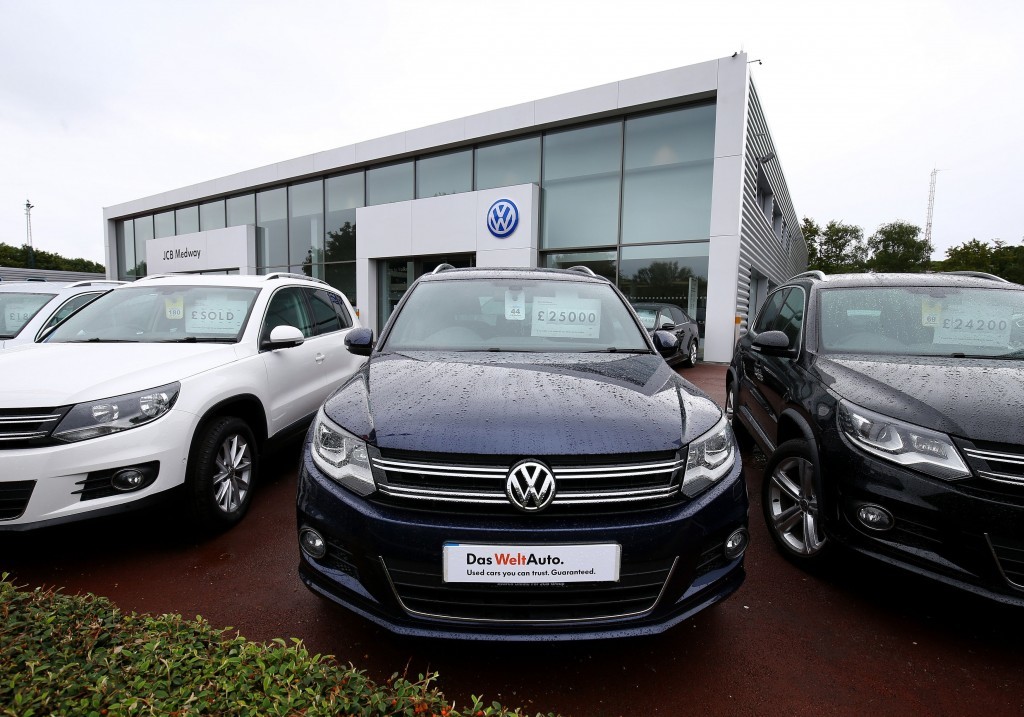
Volkswagen is to halt delivery of its 2016 Jetta, Golf, Passat and Beetle diesel cars in the US – raising speculation that the emissions-cheating device similar to those in earlier models is also in its new vehicles.
The German car giant has admitted that four-cylinder diesel cars from 2009 to 2015 model years had software that helped them cheat emissions tests. The admission came after the company was confronted by the US Environmental Protection Agency and California regulators, sparking a worldwide scandal that involves 11 million vehicles.
Now VW is withdrawing US emissions certificate applications for the 2016 models, leaving thousands of diesels stranded at ports all over the country and giving dealers no new oil-burning vehicles to sell.
The application withdrawal was revealed in written evidence submitted by Volkswagen of America chief executive Michael Horn to a US House of Representatives sub-committee.
It says VW was withdrawing its application because the cars have software that should have been disclosed to the EPA, which must certify them for sale in the country.
It was not clear when VW would refile its application, but Mr Horn’s evidence said the company was working with regulators to obtain certification.
It is also unclear exactly what the device does. EPA spokeswoman Liz Purchia said VW recently gave the agency information on an “auxiliary emissions control device”. The EPA and California Air Resources Board are investigating “the nature and purpose” of the device, she said.
A Volkswagen spokesman in the US said he did not know what the device did, but the company said that such devices sense engine performance, road speed “and any other parameter for activating, modulating, delaying or deactivating“ emissions controls.
Mr Horn, 51, will appear before the House panel on Thursday and witnesses are typically required to provide a copy of their prepared remarks a day in advance.
The lack of certification is bad news for American VW dealers, who were hoping to put the new models on sale soon in the wake of last month’s admission that the company had installed on-board computer software designed to cheat on government emissions tests in nearly 500,000 “clean diesel” cars.
For some VW dealers, the diesel models accounted for about a third of sales. Tom Backer, general manager of Lash Volkswagen in White Plains, New York, said his business had already lost three deals with potential buyers because he could not get the new cars.
“It’s not good,” said Mr Backer, who typically sells only a small number of diesels. “It’s definitely a stain on the brand’s image.”
Thursday’s appearance will be the first on Capitol Hill by Mr Horn, a German and veteran VW manager who took the reins of the brand’s American subsidiary last year. He is expected to face blistering questions about when top executives at the company first learned of the scheme.
Mr Horn will tell Congress he only learned about the cheating software “over the past several weeks”, VW spokeswoman Jeannine Ginivan said.
He will also echo prior statements by the company’s global chief executive apologising for the cheating.
“On behalf of our company, and my colleagues in Germany, I would like to offer a sincere apology for Volkswagen’s use of a software programme that served to defeat the regular emissions testing regime,” Mr Horn will say, according to his prepared remarks.
“These events are deeply troubling. I did not think that something like this was possible at the Volkswagen Group. We have broken the trust of our customers, dealerships, and employees, as well as the public and regulators.”
Also scheduled to evidence on Thursday are two officials at the EPA who oversee emissions testing and compliance with clean air rules.
VW first confessed the deception to US regulators on September 3, more than a year after researchers at West Virginia University first published a study showing the real-world emissions of the company’s Jetta and Passat models were far higher than allowed. The same cars had met emissions standards when tested in the lab.
VW was able to fool the EPA because the agency only tested the cars on treadmill-like devices called dynamometers and did not use portable test equipment on real roads.
The software in the cars’ engine-control computers determined when dynamometer tests were under way. It then turned on pollution controls that reduced the output of nitrogen oxides that contribute to smog and other pollution, the EPA has said.
Only when the EPA and California regulators refused to approve VW’s 2016 diesel models for sale did the company admit earlier what it had done.
Though VW and US regulators have not yet announced a fix for illegal emissions under a nationwide recall, Mr Horn will say the company is “determined to make things right”.